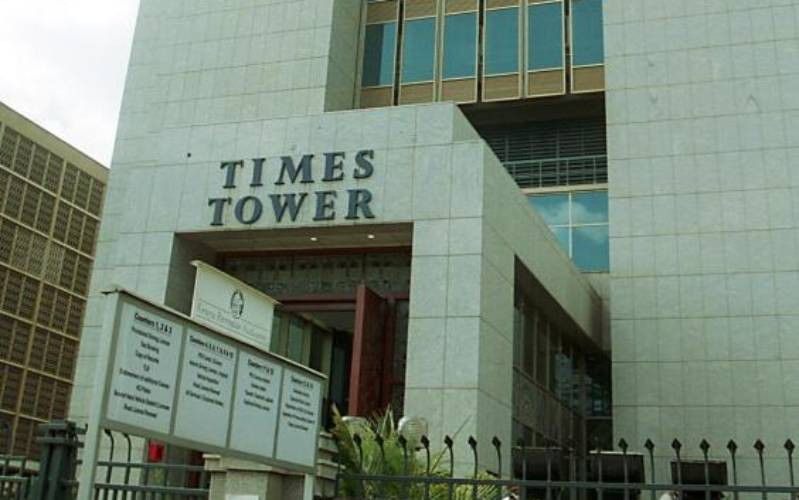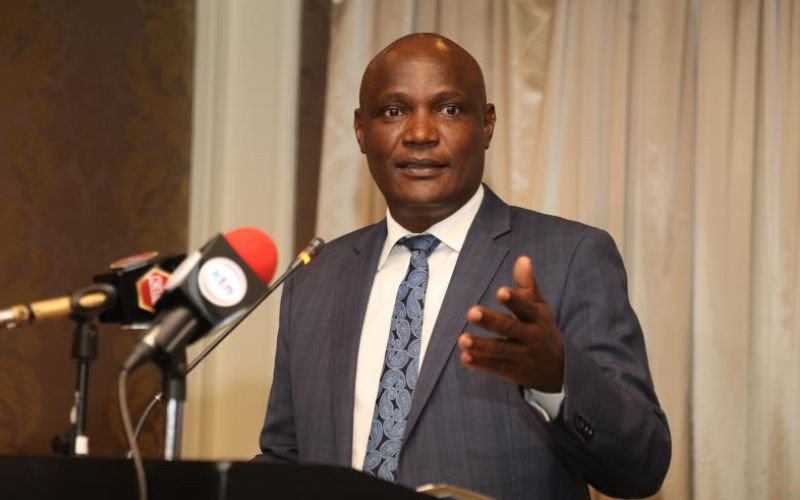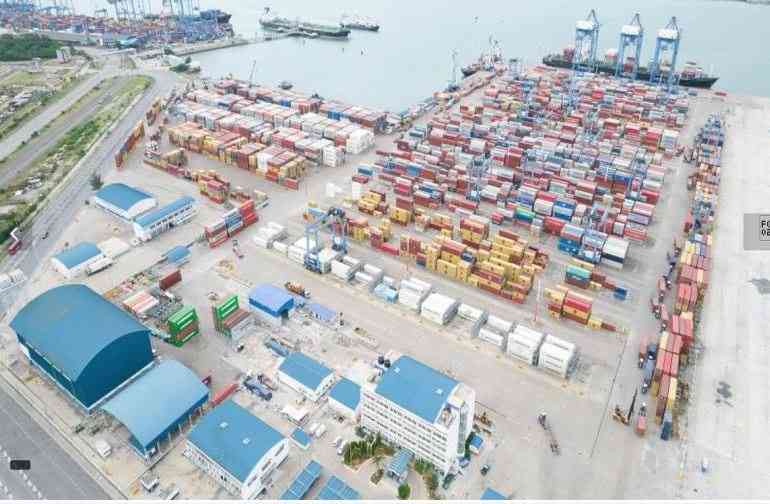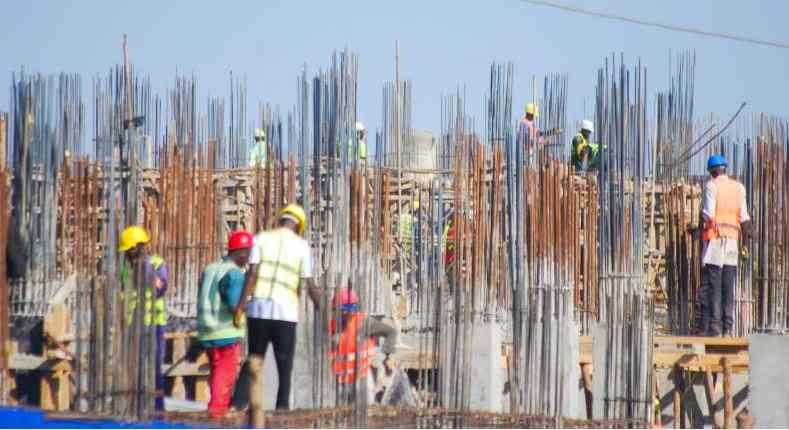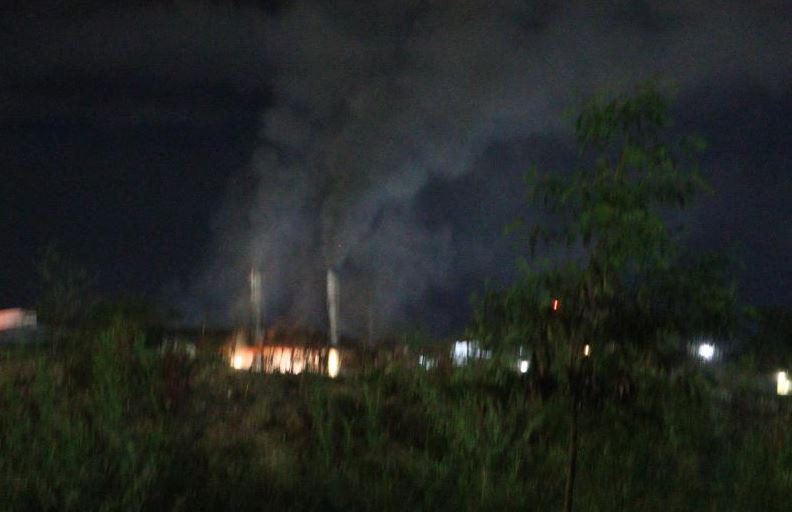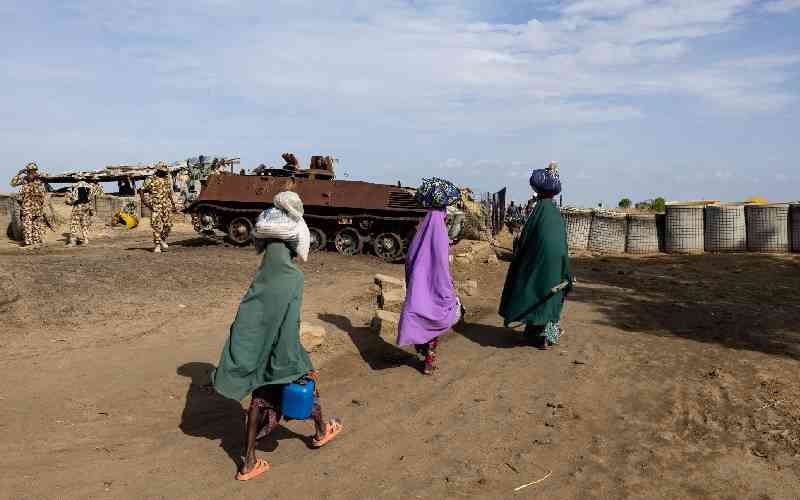
From the air, Monguno looks like a fortress, with deep trenches slashing into the sand around this garrison town in northeast Nigeria's volatile Borno State.
These defences have kept the Monguno largely secure despite the region witnessing a recent surge in attacks on military bases by jihadists fighting a grinding 16-year war.
Fighting in Borno may have eased since the conflict's peak in 2015, as jihadists have been forced back.
But militants from the Islamic State West Africa Province group or its rival, Boko Haram, have attacked or temporarily overrun a dozen army bases this year in Borno and neighbouring Yobe state.
Monguno itself fell briefly to the jihadists in 2015.
Since 2019, the Nigerian army has withdrawn from villages and smaller bases to hunker down in so-called "supercamps", or garrison towns, to protect its troops.
But critics argue this gives the jihadists free rein in rural areas.
The roads leading to Monguno are dotted with barriers to slow down vehicles approaching it.
As soon as they pass the last trenches to the north and towards the shores of Lake Chad, where attacks are most frequent, two soldiers equipped with metal detectors sweep the road.
"We clear this 10-kilometre (six-mile) route every day to neutralise any explosive devices that may have been hidden there during the night," said Major Oluwafemi Seyingbo, 37, who heads this demining unit.
According to the United Nations Mine Action Service, the number of improvised explosive device blasts skyrocketed in 2024 in Nigeria's three northeastern states, resulting in 418 civilian casualties in 2024, twice as many as in 2023.
Twelve checkpoints manned by the Nigerian army control the various entrances to Monguno.
Major Friday Feekwe, 37, commands one of them.
"In March, we repelled two attacks in a few weeks. The attackers arrived in large numbers, equipped with heavy weapons," he said.
Since then, the checkpoint has been equipped with an imposing watchtower covered with camouflage netting and a 12.7 mm machine gun.
Stay informed. Subscribe to our newsletter
Monguno has been barricaded for the past four years to ward off attacks by Boko Haram.
At its peak in 2013 and 2014 the group made global headlines for kidnapping nearly 300 schoolgirls from Chibok, also located in Borno.
Then, the jihadists controlled a 30,000-square-kilometre (12,600-square-mile) area straddling the countries surrounding Lake Chad.
Monguno has become a refuge for the people of Borno thanks to the presence of the Multinational Joint Task Force, which groups troops from three Lake Chad countries: Nigeria, Chad, Cameroon, and Benin.
The vast base houses the force's Nigerian sector command.
Outside the Monguno base, Umar Bullam, spade in hand, was at work in complete safety.
"I had land more than five kilometres from here that I had to abandon after Boko Haram looted my crops and fertiliser," the 30-year-old said.
"There is peace and security here," said Hauwa Garba.
The 35-year-old arrived at the Monguno registration centre for displaced people two months ago from neighbouring southern Niger, where she had lived for 11 years.
The jihadists arrived in her village "in the middle of the night and killed the adults and kidnapped the children", the mother of seven said in a low voice.
She has no news of one of her daughters, 15-year-old Aisha, who was captured that night.
Borno State alone accounts for nearly half of Nigeria's 3.6 million displaced people, according to the UN.
"Nigeria has managed to prevent jihadist groups from capturing major cities as they did in 2013-2014 or 2016," said Vincent Foucher, a researcher at the CNRS, or the French Institute for Scientific Research.
But despite a reinforced trench system and aerial surveillance, the country "still has great difficulty attacking jihadists in the heart of their territories in more remote areas", he said.
The resurgence of attacks is all the more worrying given that the groups now have new means at their disposal, as demonstrated by the first use of drones on December 24 against the Wajiroko military base in northeast Nigeria.
"Thanks to the precision of drones, the Islamic State in West Africa, if not quickly stopped... could transform relatively secure military outposts and civilian locations into precarious targets," the Institute for Security Studies (ISS Africa) warned in a June report.

